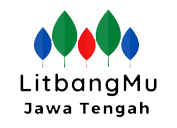PENERAPAN MODEL PEMBELAJARAN PROBLEM BASED LEARNING (PBL) PADA MATERI PERUBAHAN FISIKA DAN PERUBAHAN KIMIA SMK
DOI:
https://doi.org/10.51402/jlste.v3i1.129Keywords:
Chemistry Learning, PBL, Physical and Chemical Changes, Learning InnovationAbstract
Learning is required to provide opportunities for students to be involved in the learning process, including chemistry learning. Learning chemistry is still a scourge for most children, or is considered a difficult subject. Based on observations and interviews, the results showed that students were less actively involved in learning activities. This is because teachers have not optimized the use of methods and innovative learning models. This research focuses more on the application of the PBL learning model. The hope is that students will be motivated to study chemistry, especially the topic of physical and chemical changes. This research is a qualitative descriptive study. Data processing techniques are carried out by describing the data collected and analyzing the implementation of learning, in order to find best practices that can be disseminated. The impact of applying the problem based learning model on material on physical changes and chemical changes is very affective because it can make students active in participating in learning activities and learning outcomes also increase. In order to make learning innovation work well in the future, you must: Carry out careful planning in the learning process which can be done through coordination with teachers and education staff. Careful planning ensures that innovation will not disrupt the flow of in-depth learning of the material. On the other hand, innovation can support a better level of understanding of the material.






 Pendidikan Profesi Guru (PPG) UNIMUS
Pendidikan Profesi Guru (PPG) UNIMUS
